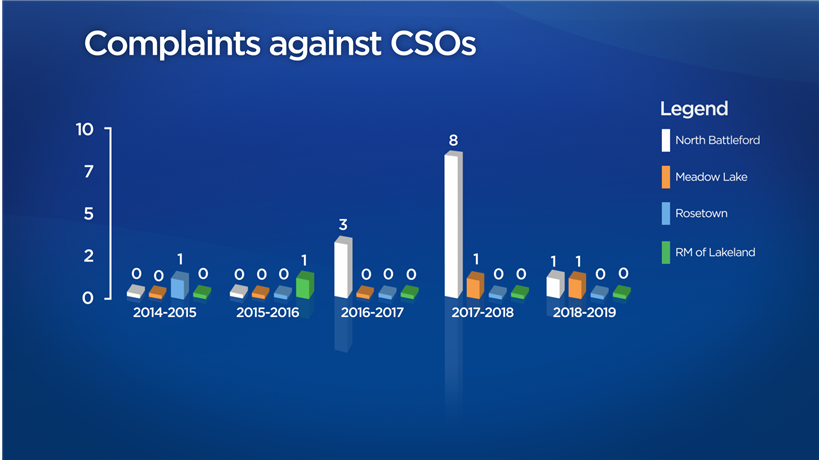EDITOR’S NOTE: This is the first in a series of three stories by Global Regina this week examining the role of and challenges faced by Saskatchewan’s Public Complaints Commission as the government moves to modernize the existing policing oversight model in the province.

The civilian oversight agency responsible for investigating public complaints against municipal police in Saskatchewan is experiencing a 12 per cent increase in workload, says its chair.
“It is quite a bit to deal with,” Brent Cotter told Global News.
Within the first nine months of the 2019-20 fiscal year, the Public Complaints Commission (PCC) received 138 complaints, almost as many complaints as it did in the entirety of 2018-19. At that rate, Cotter said the agency is on track to receive a record-high 157 incident reports before March 31.
But the PCC received about the same amount of funding in the provincial budget in 2019-2020 – just under $650,000 – as it did in 2014-15, when only 124 complaint files were opened.
“It became something of a challenge,” Cotter said. “Our business is modestly growing at the same time.”
Expanded jurisdiction
Cotter attributes at least part of the increase to his agency’s expanded jurisdiction to include community safety officers (CSOs) – bylaw officers with special permissions under the provincial police act.
While just two municipalities employed CSOs when the program started in 2008, the PCC now has jurisdiction over CSOs in North Battleford, Meadow Lake, Rosetown and the RM of Lakeland.

Get daily National news
The agency receives a “noticeable number of complaints” regarding them, Cotter said.
The PCC does not break down the jurisdictions from which complaints originate until after March 31, said Cotter, who did not provide an early estimate of 2019-20 data regarding CSOs.
And the mandate could grow again.
Cotter said the province is considering adding Saskatchewan Highway Patrol officers, of whom there are approximately 100.
“If the number of people who are subject to the jurisdiction of the Public Complaints Commission goes up, it’s likely that the quantity of our work will go up,” he said.
Public confidence and independence
- Jasper mayor says CN Rail relocation will be devastating: ‘Deeply disappointed’
- Retired Quebec teacher buys winning lottery ticket at last minute, wins $40M
- N.B. election: Higgs went to ‘very dark place’ with Liberal joke, opponent says
- GM, Volvo, Land Rover vehicles among those in big recall. What to know
At a time when public confidence in policing has dipped, according to a national poll of 1,655 people released by the Angus Reid Institute in January, the independence of Saskatchewan’s civilian oversight agency is strained.
The PCC is forced to turn back to the police for help as its workload grows, Cotter said.
“The greater the crush of work, the more we have to rely on, selectively, referring some of our investigative work back to the Regina and Saskatoon Police,” he said.
“If we received an additional amount of money, we would invest it nearly all in investigators so that we can be as truly independent as possible.”
In a statement, Saskatchewan’s Ministry of Justice said it is reviewing the models of other Canadian jurisdictions and engaging in conversations with police services across the province to “determine what improvements can be made.”
Vice-President of the Saskatchewan Association of Chiefs of Police Vice President Rick Bourassa, also the Moose Jaw Police Service chief, said the spike in complaints is concerning. But, he emphasized municipal police officers have thousands – if not more – uncontroversial interactions with citizens across the province.
“It is a very small number, but it is a very important number,” Bourassa said of the number of complaints.
From the perspective of the chiefs’ association, there is “great confidence in the ability of a police agency to investigate another police agency,” he said, noting it to be problematic to the forces involved as it re-purposes their internal resources.
“That’s been the bigger challenge,” Bourassa said. “But we are very aware that there is concern about the police investigating the police.”
Bourassa said the chiefs support investigation by a truly independent outside body.
“Public confidence is what we’re based on,” he said.










Comments